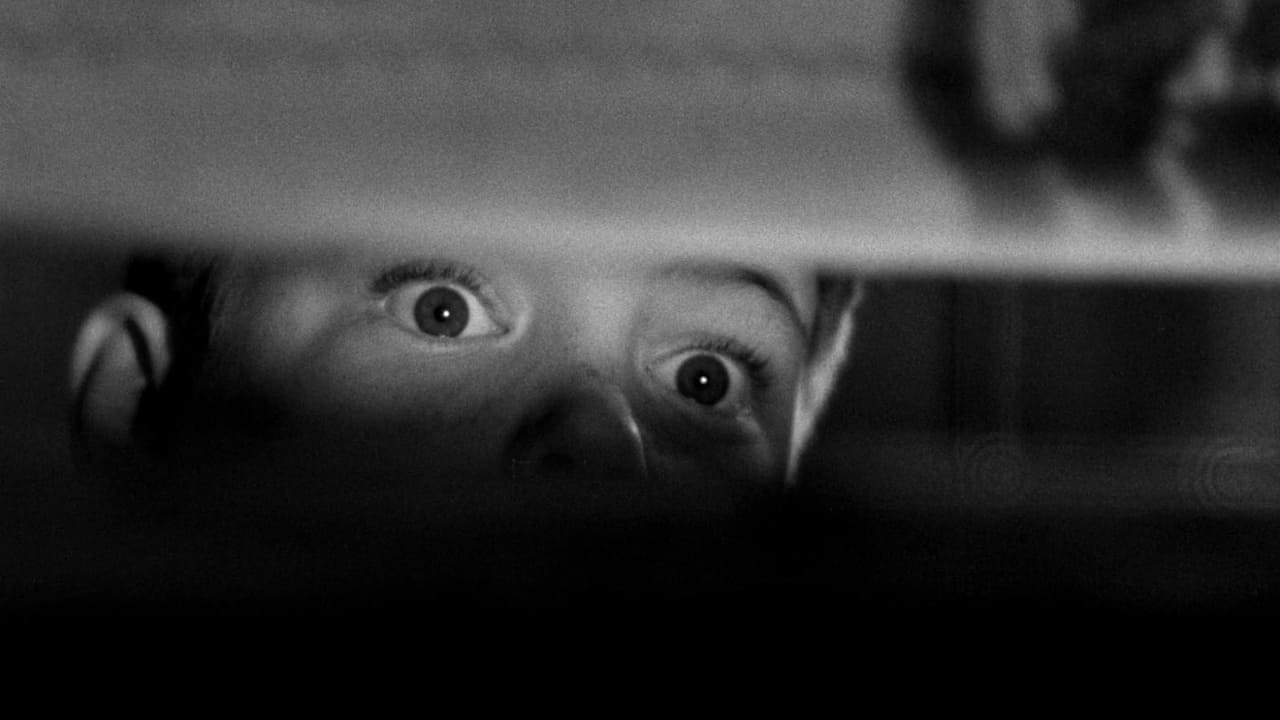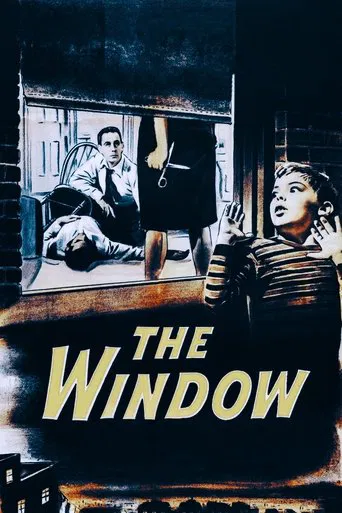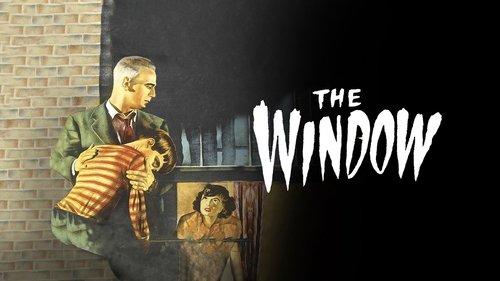


Wonderfully offbeat film!
... View Moreone of my absolute favorites!
... View MoreThere is just so much movie here. For some it may be too much. But in the same secretly sarcastic way most telemarketers say the phrase, the title of this one is particularly apt.
... View MoreBlending excellent reporting and strong storytelling, this is a disturbing film truly stranger than fiction
... View MoreThis is a surprisingly suspenseful thriller with a very good cast. The story takes place in a NYC walk up apartment building where a 9 year-old boy, Tommy Woodry (Bobby Driscoll), lives with his mom (Barbara Hale) and dad (Arthur Kennedy). Tommy's dad has to work nights. Since Tommy is always making up stories about himself and others, his parents are concerned about his false story-telling problem. Is this just a phase or should they get some kind of professional help for Tommy? One hot summer night, Tommy asks his mother if he can sleep on the fire escape to cool down while he sleeps. She agrees. However, during the night on the fire escape, Tommy witnesses what he believes to be a murder. He witnesses this though a thin opening in a window shade from the upstairs apartment. When Tommy tells his mother what he witnessed, she tells him that he was just dreaming and should go back to sleep. Concerned, his mother tells his father and he, too, is concerned after questioning Tommy's story. With no one believing his story, Tommy reports it to the police. Fearing that the upstairs neighbors—the Kellersons (Paul Steward and Ruth Roman)--will kill him, Tommy asks the police not to identify him as the person reporting the murder. So, when a police officer goes to the Kellerson's apartment, he poses as a building inspector to check any potential "crime scene" that may be real. He finds nothing that the Kellersons cannot explain and proceeds to assume that Tommy's story was JUST a story. However, the Kellersons now know that they have to get rid of Tommy before he talks too much. To do this, they send a telegram to Tommy's mother to visit her sick sister. This leaves Tommy alone the following night which, in turn, leads to a terrifying cat-and-mouse game between Tommy and the Kellersons.....
... View MoreBased on William Irish's (aka Cornell Woolrich) remarkable short story " fire escape" ,this is some kind of "rear window" seen through a child's eye ;everybody knows that Woolrich also wrote the novel which provides Hitchcock with one of his best screenplays (and movie).With a much more modest budget,without very big stars (Arthur Kennedy and Ruth Roman were young at the time),"the window" compares favorably with the rear one.The differences between the short story and the movie are minimal :the names were slightly changed (Charlie "buddy" becomes Tommy and the Kellerman are the Kellerson -because the villain's name sounded too Jewish?-;the telegram is a true one ;the chase in the streets is shortened ,probably because it' s a black and white movie,and Woolrich's depictions and his stunning use of the red and green lights were impossible to film .The Kellerson woman shows some compassion when her husband wants to push Tommy off the roof :attractive elegant Ruth Roman is ,among the cast ,the weakest link :she was on the paper a rather crude heavily made-up woman the boy "did not find pretty"But the rest of the cast is exactly as Woolrich depicts them :Bobby Driscoll always acts naturally and Barbara Hale is the mom everybody would like to have.Aesop's lines ,which open the movie,and which everybody knows ,have never been so relevant.A fine film noir,with a splendid use of shadows and lights and buildings near decay.
... View MoreBarbara Hale, Arthur Kennedy Ruth Roman, Bobby Driscoll and Paul Stewart star in "The Window," a 1949 film.In a takeoff of the story of The Boy Who Cried Wolf, Tommy Woodry is an only child with a very active imagination. He is known among his friends and parents as being a teller of tall tales. One night, it's so hot in their New York apartment that Tommy goes onto the fire escape to sleep. There, looking in the next apartment, he witnesses a murder. The problem is, no one believes him. Except the killers.Good nail-biter with lots of references to corporal punishment for kids, which was common back then. It's plenty of violence, too, as well as a dramatic ending.Arthur Kennedy was one of the most underrated actors in show business - though this is a good film, it's a small one, and he deserved something with a higher profile. Barbara Hale, just a few years later would achieve TV immortality as Della Street, Perry Mason's secretary. At 27, Ruth Roman makes an impression as Mrs. Kellerton, who was involved in the killing. She's both beautiful and frightened.The actor who plays the little boy, Bobby Driscoll was very good and continued to work until around 1960, when drugs and a criminal record kept him from getting work. He died at 31 of heart problems, penniless and homeless.Good movie, worth seeing.
... View MoreThe best thing about this little film is the claustrophobic NYC tenement landscape that is realistic and an unfiltered urban underworld of dilapidated brick and wood with rooftops and fire escapes, collapsing beams and decay. The next best thing is the child star and the supporting cast delivering somber characterizations with a modicum of hope (the struggling parents) and desperate despair (the neighbors upstairs).A movie that puts you in a noir environment of shadows and heat. Oppressive and ominous the tone is that of a closeted existence and an overwhelming sense of suspense. It is quite a contrast to the upbeat suburban surroundings that would dominate the affluent air of the 1950's materialism.One doubts that you could have set this in a barbecuing back yard with cars in the driveway and kitchens full of appliances and maintained the fear and frustration that operates in this bleak B-Movie. It was Film Noir that dared dramatize the "other side" of post war America and this is one of the last great ones to have the courage to show the flip side of the dream, that for some people was still a nightmare. It is not surprising that the bad dream solution was utilized to explain what the little boy really witnessed.An off kilter thriller that is taut, tantalizing, and terrifying.
... View More